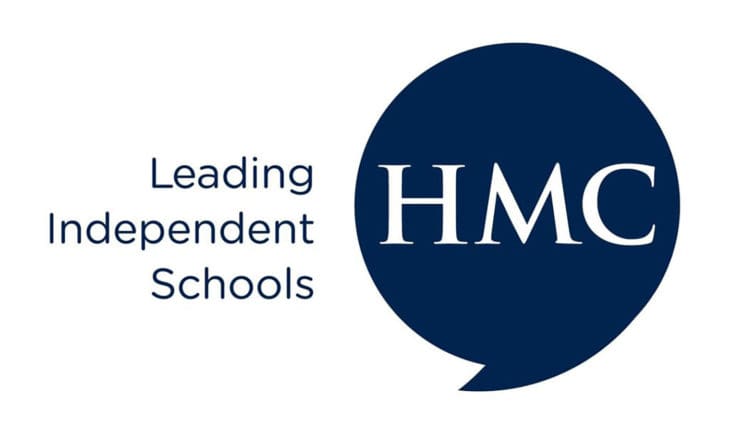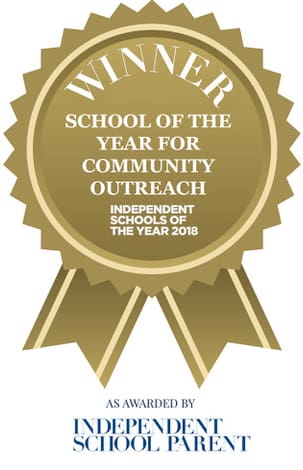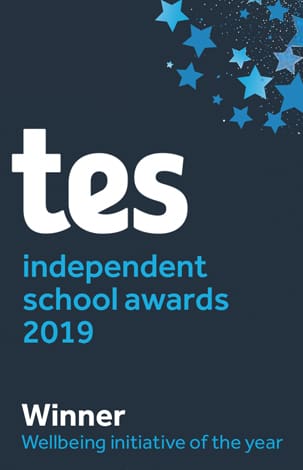
Tailored, Not Uniform
Matthew Judd, Head of Leighton Park School, Reading, reflects as a new Head on the ideas emerging from this year’s HMC Conference held in Manchester, 1–4 October.
Attending the HMC autumn conference for the first time, I was reminded of our professional collective noun, a ‘quiz of teachers.’ The conference began with quizzical looks and a readiness to explore the best practice and learn from expert speakers but also from each other, the theme being ‘Together to Learn’. In a pre-conference letter and speech to HMC members, HMC Chair, Shaun Fenton, Head of Reigate Grammar School, set a clear, ethical and optimistic tone: that we need to be proud of and distinctive in what our individual schools do, and that what we do is vital for the UK educational community. The conference bowled new ideas at us, encouraging us to take away those fresh concepts which were right for us and would work in our own schools. To use the collective inspiration but apply it to our own schools. Not uniform, but tailored to us.
The conference offered both practical tips and inspirational ideas to inform strategic thinking. Shaun encouraged us as Heads to reflect, for our pupils’ sake, on his top ten ingredients for a lifetime education:
- Joy
- Community
- Good mental health
- Knowledge
- Physical health and happiness
- Focus and aspiration
- Creativity
- Moral and ethical purpose
- Flexibility
- Emotional literacy
This was a reminder, if reminder were needed, that independent school heads should think less of targets, dashboards, clipboards, metrics, spreadsheets, compliance and box ticking, and more of our ethical purpose as educators. Valuing more than that which can be measured (if we had indeed ever become ethically blind). The Bishop of Manchester similarly inspired us in his address: to educate the young to be wise and ensure they are well-informed and commission them to make the world a better place. That will be crucial as 50% of children born today will live to be 105 years old.
Ensuring the current public discourse understands the real value of independent schools to the UK was a message Heads were invited to evangelise about. ISC’s independently researched report shows that their schools contribute £11.9bn to UK GDP and save British taxpayers at least £3.5bn annually. ISC schools directly employ at least 250,000 in the UK. The message was clear: we should be proud of what we are doing and not embarrassed to defend the independent education sector when it comes under threat.
The work that HMC does on wellbeing is vitally important. The Tech Control campaign, with new resources launched at the conference, empowers young people to take control of their use of technology. Its new free materials, including a video and lesson plans, give Heads and schools new tools to promote young people’s healthy online living. Heads at the conference viewed this work as a helpful contribution to the welfare and wellbeing of their pupils; something to take away and use in their school, the materials being available through the public HMC website.
In several sessions debate rumbled about the attractiveness of unconditional offers by universities. It is a measure of how far the emotional welfare focus of schools has come that most Heads saw the unconditional offers as helping the stress levels of leavers rather than cause for them to be demotivated by the absence of target grades.
In workshops, the work of what the best schools do in the light of John Hattie’s meta studies confirmed the power of Heads understanding the Visible Learning concepts. In summary, the latest (and gigantic) studies show that the best learners understand how to learn, interconnect with feedback, explain and understand progress and apply the habits of thinking and doing. Teachers can work less frenetically and add more value if they work within the Hattie framework, but, encouragingly, Heads need to know how to make this academic research bespoke to their own school.
The collective dialogue between Heads at the conference, understanding the issues facing us, was a highlight. The burning issues: safeguarding children and the increasing workload that is generating for schools; the growing prevalence of drugs amongst teenagers; the powerful external financial threats to independent schools; and the passionate and wholehearted commitment to interlinkage with our colleagues and pupils in the maintained sector. In this collegiality the Conference came alive.
Alongside the profound and the useful, the conference heard from speakers who delighted with memorable one-liners. How useful to hear the former Virgin Atlantic Marketing Director tell us to “remember to take your own sandwiches on their flights” or understand that in order to become a millionaire airline owner you must start out as a billionaire. Or indeed the BBC’s Michael Buerk’s observation to us of a world so mad that Netflix’s The Crown series cost more than the cost of keeping the royal family last year.
I left Manchester with a very clear sense of pride in what independent schools add to the landscape of education in the UK. HMC schools have a role as beacons of best practice, a supreme collaborator with educators of all types, grounded in doing all that it can to drive a passion for learning in young people and ensure their wellbeing and life chances are as developed as possible. To use each school’s very independence to the full. HMC Manchester 2018 revealed to me that, quite simply, the ‘quiz of teachers’ needs to be an ‘inspiration of heads.’
Matthew L S Judd
October 2018
The views are personal to the Author.


